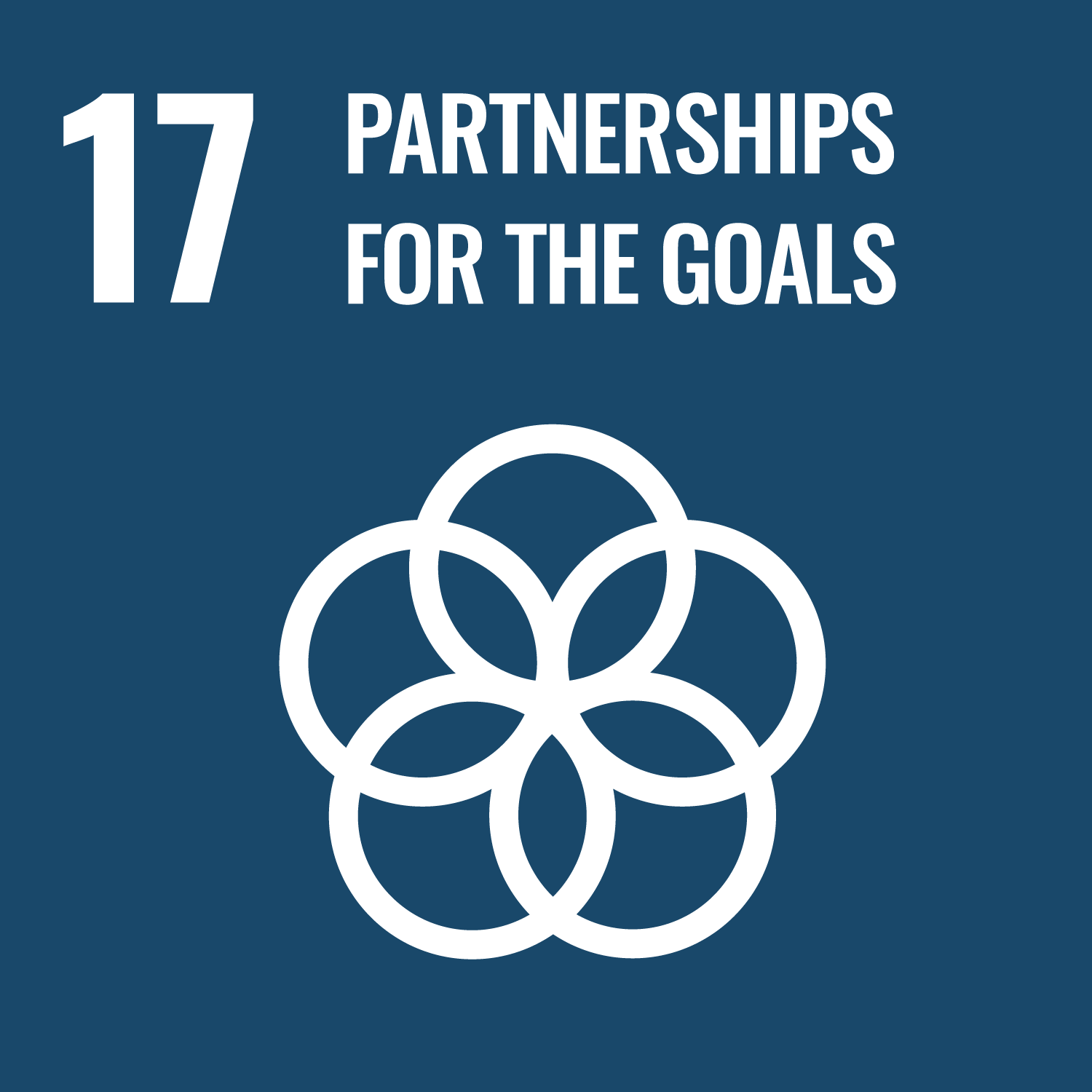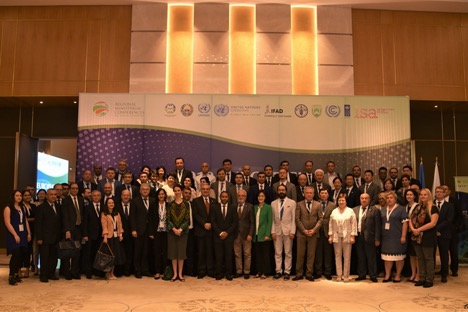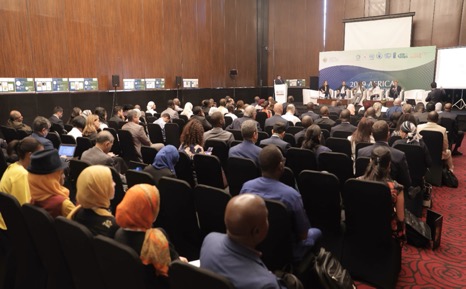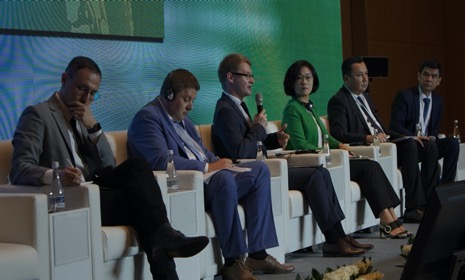Advancing the Green Economy for Sustainable Development
Bridging countries and facilitating partnerships for global action to promote the green economy
Challenges
The priorities and concerns identified during the United Nations Conference on Sustainable Development (Rio+20) provide a historic platform for establishing an international entity to promote the widespread and increased adoption of the green economy in the context of sustainable development and poverty eradication. Such an entity could serve as a platform for international cooperation and knowledge-sharing among industrialized and developing countries. In response, the World Green Economy Organization (WGEO) was established to support emerging global actions towards the widespread adoption of the green economy model.
As a global partner for developing countries transitioning to a green economy, WGEO would tap into the potential of South-South and triangular cooperation to balance growth and equity on a global scale, in complementarity with the traditional North-South cooperation model.
Towards a Solution
In order to achieve the ambitious agenda and long-term vision of WGEO, the United Nations Office for South-South Cooperation (UNOSSC) helped to mobilize action around seven WGEO partnership platforms. The role of UNOSSC in this project is also to showcase the effectiveness of the South-South and triangular cooperation model in further catalysing the adoption of green economy approaches, as well as enhancing its intensity and dynamics. Working in close cooperation with other partners, UNOSSC helped to connect the values of WGEO to the needs and aspirations of its numerous stakeholders.
In cooperation with the United Nations Development Programme (UNDP) and other United Nations agencies, funds and programmes, UNOSSC supported the partnership mobilization and global outreach efforts of WGEO, given that the majority of WGEO stakeholders and beneficiaries come from the global South. In doing so, UNOSSC facilitated the sharing of knowledge and expertise with relevant initiatives supported by UNOSSC, such as the annual Global South-South Development Expo, the Maritime-Continental Silk Road Cities Alliance and the Think Tank Network.
- Governments of WGEO member States;
- International organizations, including United Nations agencies, funds and programmes such as the United Nations Industrial Development Organization, the United Nations Environment Programme, the United Nations Framework Convention on Climate Change (UNFCCC) and others;
- Private sector entities, financial institutions, philanthropic organizations and other entities that meet the highest standards of reputability;
- Municipalities (smart cities) and other constituent units or political subdivisions of WGEO member States or potential member States, as well as associations or other cooperative undertakings of municipalities and cities;
- Leading academic institutions, including research and educational institutions whose activities are relevant to WGEO;
- International non-governmental organizations with experience in several States, of which at least one is a State member of WGEO;
- Youth associations or organizations supported by the appropriate authorities of WGEO member States or potential member States
Global outreach efforts focused primarily on overall advocacy initiatives contributing to the widespread adoption of the green economy model, the promotion of home-grown systems and mechanisms for an inclusive green economy, and the upscaling of research and knowledge-sharing in the domain. A number of deliverables were produced to create platforms for further collaboration and build the capacities of policymakers around the world in adopting and advancing green economy strategies in national development agendas.
The initiative produced a range of strategic achievements, including:
- WGEO Executive Training is a recognizable brand that was created through engagement with strategic partners, including the International Solar Alliance, the Global Green Growth Institute (GGGI), UNDP, the Economic and Social Commission for Asia and the Pacific, the Economic and Social Commission for Western Asia, and the Economic Commission for Latin America and the Caribbean;
- A total of 330?executives and practitioners have been trained, including representatives from Governments, international organizations, the private sector and civil society institutions from around the world;
- Policy dialogue was facilitated, leading to specific policy recommendations owned and shared by a wide range of stakeholders through the joint statements adopted at five regional ministerial conferences on green economy, issued by over 535?officials from 91?countries worldwide;
- A network of government and institutional focal points on green economy has been developed, and regular contact is maintained;
- Partnerships were facilitated with GGGI, UNFCCC, the United Nations Global Compact, the International Solar Alliance, United Nations economic and social commissions, the Brazil Africa Institute, the Asia Foundation and a number of other institutions.
A series of substantive networking and knowledge exchange forums were organized in 2019:
- 2019 Asia-Pacific Regional High-Level Forum on Green Economy, held in Bangkok, Thailand from 10?to?12?June, with 95?participants from 21?countries
- 2019 Africa Regional Ministerial Conference on Green Economy, held in Cairo, Egypt from 17?to?19 June, with 100?participants from 22?countries
- 2019 Americas Regional Ministerial Conference on Green Economy, held in Fortaleza, Brazil from 24?to?26?June, with over 80?participants from 11?countries
- 2019 Middle East and North Africa Regional Ministerial Conference on Green Economy, held in Manama, Bahrain from 2?to?4?July, with 130?participants from over 20?countries
- 2019 Europe and the Commonwealth of Independent States Regional Ministerial Conference on Green Economy, held in Tashkent, Uzbekistan from 8?to?10?July, with over 130?participants from 17?countries
- 2019 Global High-Level Ministerial Conference on Green Economy, held in Dubai, United Arab Emirates on 20?and?21?October as part of the 2019?World Green Economy Summit, with 130?ministerial-level participants and senior members of international organizations and United Nations agencies
The joint statements issued at the regional conferences express the collective aspirations and intentions to advance the green economy. Outputs produced during the initiative are based on ownership and strong demand from countries and institutions for collaboration on climate action and the green economy, proof that the results achieved will be sustainable. This initiative can be replicated with other global development partners who intend to fulfil the potential of South-South and triangular cooperation in a variety of areas.
Contact Information
Mr Edem Bakhshish, Global Director of the Joint UNOSSC-WGEO Project, United Nations Office for South-South Cooperation (UNOSSC)
Countries involved
Global
Nominated By
No Organization
Supported By
World Green Economy Organization (WGEO)
Implementing Entities
United Nations Office for South-South Cooperation (UNOSSC)
Project Status
Completed
Project Period
2018 - 2019
URL of the practice
www.worldgreeneconomy.org/latest_news/partnership-with-unossc/Primary SDG
13 - Climate Action
Secondary SDGs
17 - Partnerships for the Goals
Similar Solutions










